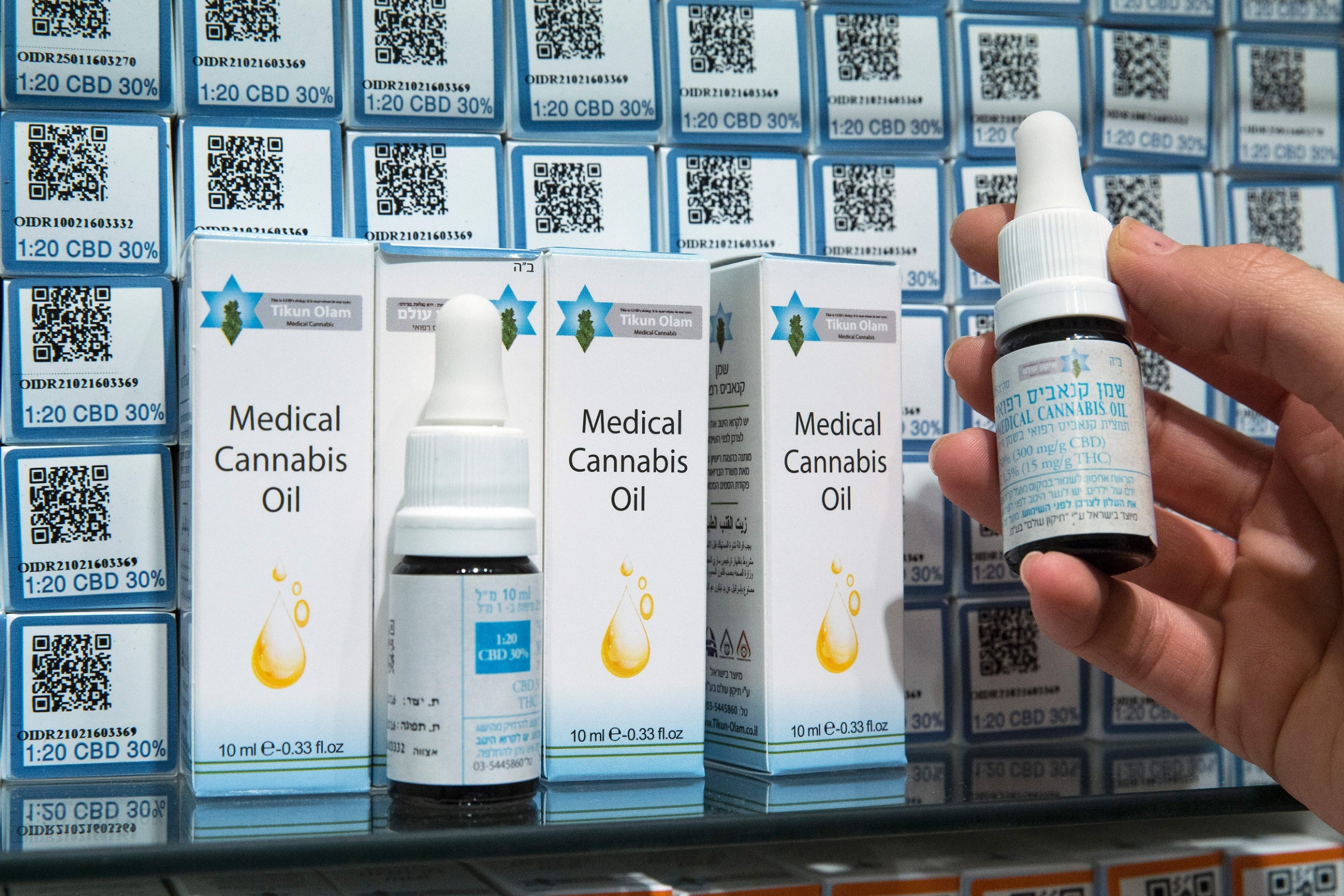Medical cannabis extract could help pancreatic cancer patients live longer, early study suggests
'If we can reproduce these effects in humans, cannabidiol could be in use in cancer clinics almost immediately,' says lead researcher

One of the major ingredients of the cannabis plant might help extend the lives of patients with pancreatic cancer undergoing chemotherapy, according to new research.
Scientists from Queen Mary University in London found mice undergoing chemotherapy for the disease survived almost three times longer if they received cannabis extract cannabidiol (CBD) as well.
Lead researcher Professor Marco Falasca said it was "a remarkable result".
CBD is one of the major components of cannabis, but unlike tetrahydrocannabinol (THC) it does not have a psychoactive effect that can make you high and is already licensed as medical product.
Pancreatic cancer has among the worst outcomes of any cancer and survival rates have barely changed in 40 years.
The new study, published in journal Oncogene, examined the impact of CBD on mice with the disease, receiving the common chemotherapy drug Gemcitabine.
The creatures treated with this combination of drugs had a median average survival of 56 days, compared to 20 days for those left untreated, while mice receiving chemotherapy alone lived for a median 23.5 days.
Professor Falasca said: “Cannabidiol is already approved for use in clinics, which means we can quickly go on to test this in human clinical trials. If we can reproduce these effects in humans, cannabidiol could be in use in cancer clinics almost immediately, compared to having to wait for authorities to approve a new drug.
“The life expectancy for pancreatic cancer patients has barely changed in the last 40 years because there are very few, and mostly only palliative care, treatments available. Given the five-year survival rate for people with pancreatic cancer is less than seven per cent, the discovery of new treatments and therapeutic strategies is urgently needed.”
The study, funded by the Pancreatic Cancer Research Fund, said the drug combination appears to block a protein called GPR55, slowing the growth of pancreatic cancer cells.
CBD oils and medicines with a higher THC content were recently approved for controlled use in on prescription by the Home Office, but the extract used in this study was a medical grade extract with virtually no THC.
It is already known to improve the side effects of chemotherapy, including nausea and vomiting, and so may also improve the quality of life for patients, the researchers said.
More than 9,000 people in the UK are diagnosed with pancreatic cancer every year. A CBD product could theocratically get on the market quickly as it is less closely regulated but independent experts said more trials were needed.
“Pancreatic cancer is one of the most hard-to-treat cancers, and new treatments are urgently needed,” said Dr Chiara Braconi an NHS consultant oncologist and scientist at the Institute of Cancer Research. "While the results look promising, there are still a number of important unknowns. We don’t know how cannabinoids will interact with other drugs, including chemotherapies, in people.”
She also warned that GPR55 protein is only a major driver in a third of pancreatic cancers so not all patients would benefit, even if the life-prolonging effect was found in humans.
Additional reporting by PA
Join our commenting forum
Join thought-provoking conversations, follow other Independent readers and see their replies
Comments
Bookmark popover
Removed from bookmarks